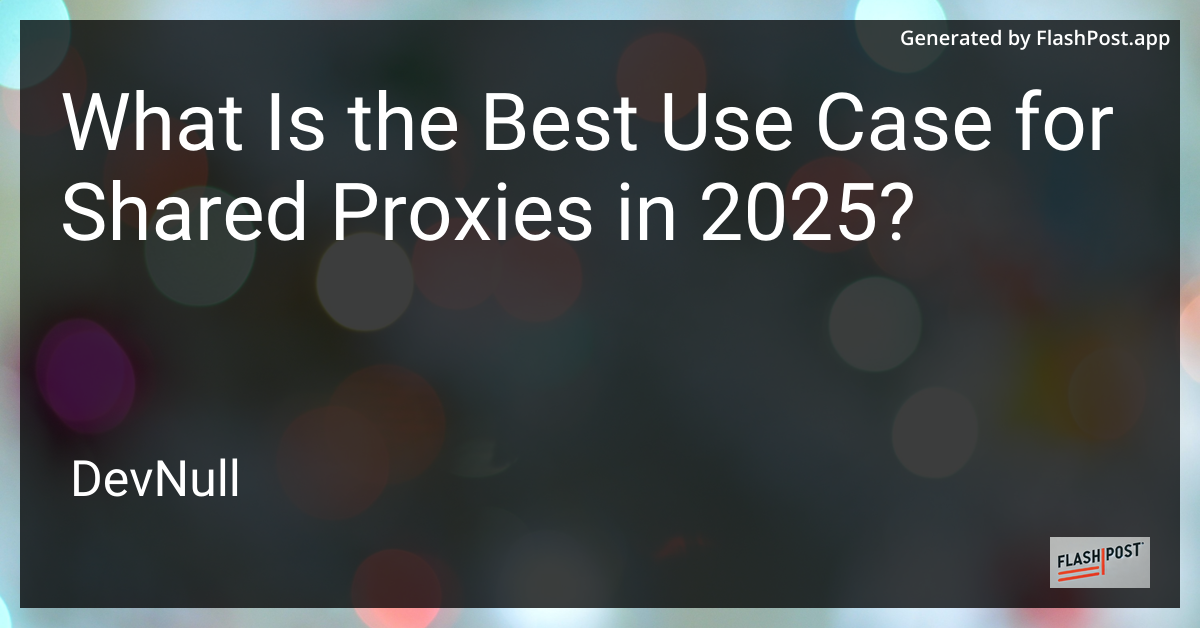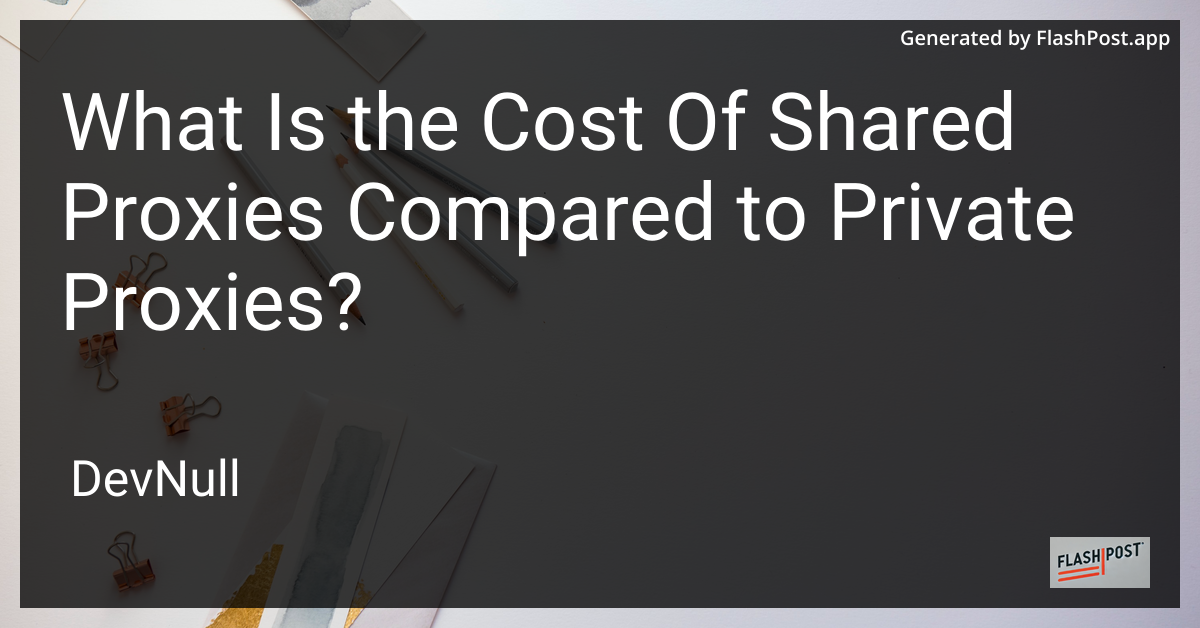

What Is the Cost Of Shared Proxies Compared to Private Proxies?
In today’s digital landscape, understanding the cost differences between shared proxies and private proxies is crucial for businesses and individuals alike. Proxies are essential tools for enhancing security, data scraping, and managing multiple accounts. However, choosing between shared and private proxies can significantly impact both effectiveness and budget. In this article, we’ll delve into the cost-benefit analysis of shared versus private proxies, guiding you to make informed decisions.
Understanding Proxies
Before we break down the costs, let’s briefly explore what proxies are. Proxies act as intermediaries between your device and the internet, masking your IP address and enhancing your online anonymity. They come in various forms, each serving different purposes, including mobile proxies and datacenter proxies, among others.
Shared Proxies: Economical Yet Limited
What Are Shared Proxies?
Shared proxies are, as the name implies, shared among multiple users. They are generally more affordable due to their communal nature, which distributes the cost across several clients. For casual users or small-scale projects, shared proxies can be a cost-effective choice.
Cost Analysis
-
Lower Price Point: The most significant advantage of shared proxies is their affordability. Typically, prices can range from $1 to $5 per IP per month, making them accessible for budget-conscious users.
-
Resource Limitation: Since these proxies are shared, bandwidth and performance can suffer, especially during peak times when multiple users are accessing the same resources simultaneously.
-
Security Concerns: Shared usage can lead to potential security risks, as activities might be mixed. This lack of exclusivity may compromise privacy and data integrity.
Private Proxies: Premium Benefits at a Price
What Are Private Proxies?
Private proxies, also known as dedicated proxies, are exclusively allocated to a single user or organization. This exclusivity ensures that resources are not shared, offering enhanced performance and security.
Cost Analysis
-
Higher Price Point: The premium nature of private proxies comes with a cost, typically ranging from $5 to $15 or more per IP per month. This pricing reflects the dedicated resources and heightened security offered.
-
Optimal Performance: With private proxies, users benefit from faster speeds and increased reliability, as there is no competition for bandwidth.
-
Enhanced Security: Exclusive usage significantly reduces security risks, making them ideal for sensitive operations like financial transactions or confidential data handling.
Comparative Insights into Proxies
To fully understand the differentiating factors among proxy types, including shared and private proxies, it’s beneficial to explore a comprehensive proxy types comparison. This comparison will aid in evaluating which type best suits your specific needs and budget.
Additionally, for specialized applications like gaming, knowing which proxy types are best can optimize your experience and results.
Conclusion
In conclusion, choosing between shared and private proxies depends largely on your specific requirements and budgetary constraints. Shared proxies offer a cost-effective solution for those needing basic anonymity and internet access without the higher expense. In contrast, private proxies provide superior performance, security, and reliability, albeit at a higher cost.
By understanding these nuances and evaluating your current needs, you can make a more informed decision that aligns with your goals. Whether your priority is budget or performance, the choice between shared and private proxies will significantly influence your digital operations.
